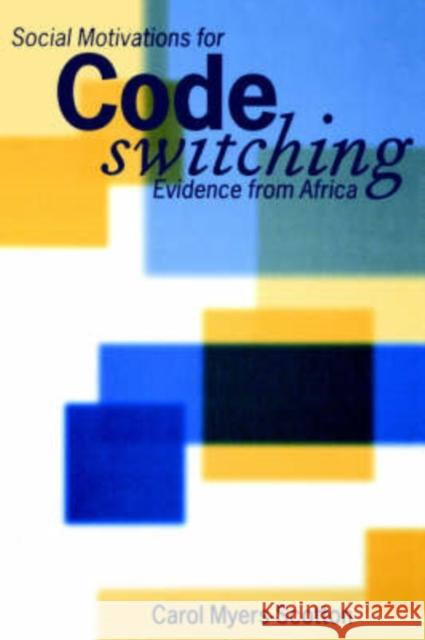Social Motivations for Codeswitching: Evidence from Africa » książka
Social Motivations for Codeswitching: Evidence from Africa
ISBN-13: 9780198239239 / Angielski / Miękka / 1995 / 192 str.
This study focuses on the social motivations for codeswitching, that is, the use of two or more linguistic varieties in the same conversation. Using data from multilingual African contexts (mostly from conversations studied in Kenya), Carol Myers-Scotton advances a theoretical argument which aims at a general explanation of these motivations. She treats codeswitching as a type of skilled performance, not as the "alternative strategy" of a person who cannot carry on a conversation in the language in which it began. When engaging in codeswitching, speakers exploit the socio-psychological values which have come to be associated with different linguistic varieties in a specific speech community: they switch codes in order to negotiate a change in social distance between themselves and other participants in the conversation, conveying this negotiation through the choice of a different code. Switching between languages, Myers-Scotton suggests, has a good deal in common with making different stylistic choices within the same language: it is as if bilingual and multilingual speakers have an additional style at their command when they engage in codeswitching between different languages.











